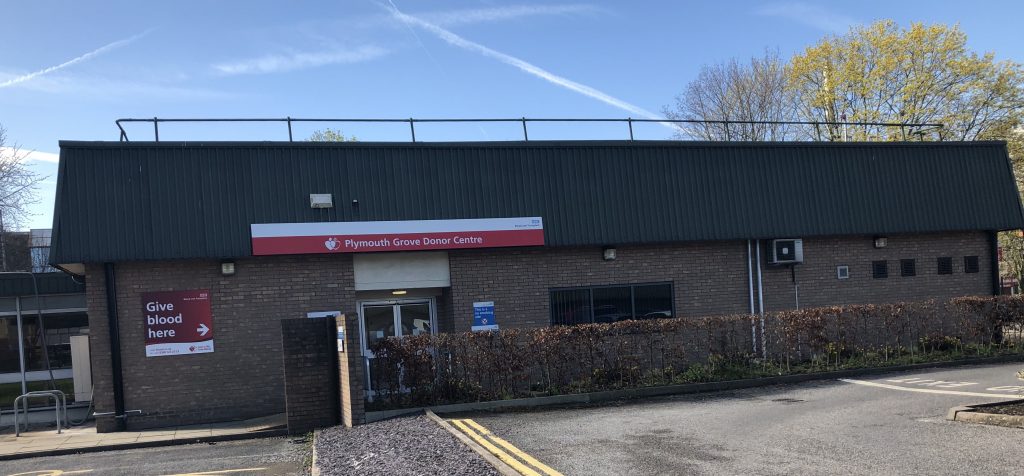
Salford residents are being urged to support an NHS appeal for more blood donors – especially those who may represent a minority group whose blood is in high demand.
There has been an appeal for people with an O- blood type to donate blood, after a 13 per cent increase in the amount of O- blood being issued in hospitals between 2014-18.
O- blood is a universal blood type which can be given to almost anyone, making the demand for this blood group high and the need critical.
As it is a universal blood type, it is used in emergency situations to save the lives of thousands of people.
Yet, only one in eight donors has this blood type- which is equivalent to around 13 per cent.
New figures from the NHS shows only 44 per cent of people know their blood type, causing the NHS to hold “whats your blood type” event across the country in February to urge new donors to come forward.
In England there needs to be 600 new donors every day to meet the demands for blood.
Thank you to Faraj, who has just given his third donation at our Manchester Plymouth Grove Donor Centre. Through giving blood, Faraj has helped to save up to nine lives! ❤️
When’s your next date to donate? https://t.co/0spksv15MQ #GiveBlood pic.twitter.com/rxjV1RJvYP
— GiveBlood ?️?️??️ (@GiveBloodNHS) February 6, 2019
As of December 2018, there was around 34,363 active donors across Greater Manchester.
Karen Ackereley, the manager of Manchester Plymouth Grove Blood Donor Centre, said: “We get an awful lot of people that just want to know what their blood type is and then don’t do the follow up action of actually booking in.”
She added: “It’s important for them to know what their blood type is. But also to us, so we can then try and target our vulnerable blood groups and get them into appointments.”
Each of these donations have the ability to save the lives of three seriously ill adults or six children from a single donation.
Karen said: “For most people, donating blood has a really positive impact. It’s that feeling of doing something good, the feeling of well being. An hour out of your life can save up-to three peoples lives and for most people that’s priceless really.”
Each session takes around an hour in total, but the donation itself only takes 10-15 minutes.
She added: “The whole process takes no more that an hour, from start to finish. All the staff are really friendly and we try and make people as relaxed as we possibly can.”
There are two permanent blood donation centres in Greater Manchester- Manchester Plymouth Grove and Manchester Norfolk House.
Karen said: “Anybody is welcome to come and visit our centre. We just ask you make an appointment first.”
However, there are frequently community-based venues to donate blood, where NHS staff set up temporary donor centres throughout the year.
These are the most common types of donation venues, with there being six listed for Salford donors.
Kirsty Koo Greenwood, a Salford blood donor, said: “I always though it was important and my way of giving back, I don’t have massive amounts of spare time to volunteer or do things like that so I give blood as it only takes about an hour.”
From donating blood, Kirsty discovered she has a rare blood type that only 8% of the population have. Donations from people like her are essential in meeting the blood supply demands in England.
She added: “I don’t ‘need’ the pint of blood they take, as my body regenerates it so why not give it to someone who needs it. I know a few people who have needed blood transfusions, including my best mates son when he was born. It can save lives which is really important.”
The NHS welcome any new donors, only asking for you to undergo a simple health check first to confirm you are able to donate.
Kirsty said: “I think it’s really important for everyone not just people living in Salford to give blood, people need it!”
Every year, around 200,000 people stop donating blood for a variety of reasons.
Therefore, the NHS are hoping to recruit 250,000 new donors this year to counteract this and meet the demands for blood supply across England.
They also hope to increase the amount of donors for less frequent: blood types, ethnicity groups and age groups.
The NHS are also trying to increase the number of black donors, who are more likely to have the Ro blood type- that is used to help patients with sickle cell disease.
Karen said: “It’s essential [to target minority groups]. If people have got the Ro blood type then we might not need to use our stock of the O- blood aswell (…) which can be used as the universal donor- as everybody knows.”
With a motto of “bleed for the things that matter to us”- there is a call for every community to get involved in donating blood.
Karen added: “If you haven’t done it before, you don’t know whether you might be one of the really vulnerable blood groups that we really, desperately need. So i think everybody should go along and do it. Find out what blood group you are and find out if its something that we really need to save people.”
Last year there was a recorded 478,762 registered donors according to the NHS. To join them or find out more visit their website.
You can contact Manchester Plymouth Grove Donor Centre via telephone: 0300 123 23 23.
Photo Credit: Senior Airman Marcy GlassReleased and Lauren Lomax















Recent Comments